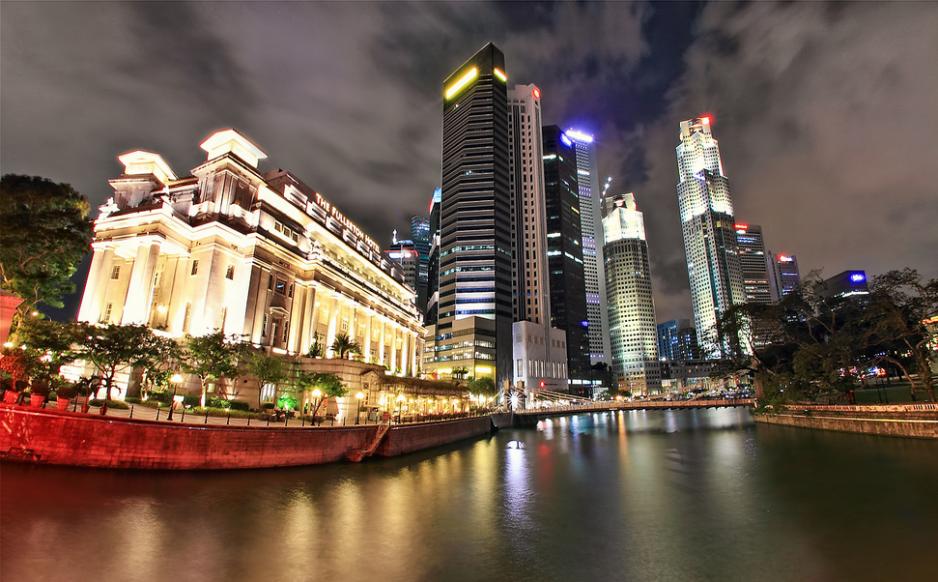Commentary: The High North - Seen From the South-East

Outside, palm trees are swaying above the quivering heat. In the distance, you can see large cranes and containers in one of the world's largest ports. I'm in Singapore, in an air-conditioned room at the National University, to discuss the Arctic.
In 2013, five Asian states gained observer status in the Arctic Council: Singapore, South Korea, China, Japan, and India. When the eight Arctic Ministers of Foreign Affairs welcomed them at the time, there was no lack of media interest - both at home in the north and here in the south-east. Journalists and public commentators speculated both on the motives of the Asian five and on possible consequences for the Council. Suddenly, the Council and its ministerial meeting in Kiruna featured on front pages across the world.
Four years later, with both a Canadian and an American Arctic Council-chairmanship behind us, it does not appear that the Asian observation has led to any radical changes in Arctic relations. On the contrary, media attention on the Arctic Council has gradually decreased - not least as other, more acute geopolitical concerns dominate today's headlines.
Yet, as then Norwegian Minister of Foreign Affairs Espen Barth Eide reminded the new observers in 2013: "There is no such thing as a free lunch." Observer status and observer-lunches must be earned, which in the Arctic Council means showing willingness to contribute - economically, scientifically, politically, and so on. In short, meetings may be observed as long as rules and norms are too.
For the five Asian countries – like all other observer states and organisations - this means that their active involvement continues even when the press’ cameras and microphones are turned elsewhere. Exactly what this engagement entails varies, of course, between these highly diverse actors; but, in short, Arctic cooperation, projects, and initiatives have been carried on in the years following Kiruna.
The Asian states’ motivations for observing Arctic Council meetings are of course manifold, but one thing that applies to them all is that the Arctic is hardly at the top of their leaderships’ geopolitical agenda. However, like the Arctic states themselves, they have much to gain from collaborations on knowledge and development. It's about sharing expertise and experience. And, as we know, the climate change we may see in the north have far bigger, far faster consequences here at the equator. Singapore’s interest in sea-level rise on the one hand, and new technological developments on the other, ought not really be as surprising as the media made it out to be in 2013 after all.
In the meeting room in Singapore, researchers from across the world are seated around the table; yet, it soon turns out that we all have shared acquaintances, people and places, in the north. What has brought us together here is our shared interest in the High North; and more specifically, a British-Singaporean research project led by Professor Klaus Dodds and Dr Chih Yuan Woon on the influence of the five Asian states’ involvement in the Arctic Council.
We discuss the topic over two days, and I learn a lot. For example, we hear about South Korea's cooperation with Arctic universities, India's "tri-polar" expertise, Singapore's port technology, and Chinese experts' views on the Northern Sea Route - to name but some of the topics. However, perhaps the most important lesson is about the surprisingly tight and complex connectivities between people and places.
When we hear talk about the "Global Arctic", it's easy to shrug at yet another trendy hashtag, but here in Singapore - in a hot and humid 32 degrees - it's impossible not to note just how extensive our social connections are.
In Singapore’s streets, you hear languages from across the world - not only is the country multilingual and multi-ethnic, but it also attracts a large workforce from abroad. On the dinner menu, I find baked Norwegian salmon on one page, Chinese noodles with a Malaysian twist on another, while I finally go for an Indian fish curry myself. Side-by-side with traditional outlets for kopi (coffee) are American coffee chains, and even a Swedish fika-café. In short, globalisation can be seen, heard and tasted.
My contribution to the research project is about identity: about how the Asian "observation" may influence the Nordic view of being and feeling “Arctic”. An Arctic identity is not about "us" and "them" or about being inside and outside a circumpolar line. On the contrary, identities are created through interaction - which means that the globalisation of politics as well as coffee habits affects how we relate to the world around us.
That which in 2013 seemed like a dramatic and, for many, surprising development in the Arctic, today looks rather more natural. It is not that Asia has "arrived" the Arctic, but just as much that the Arctic has made itself known here both before and after the ministerial meeting. Like the importance of being "Arctic" depends on those who are not, circumpolar politics also depends on relationships far from where the midnight sun shines
To my great surprise, I found the film "Sami Blood" in the in-flight entertainment selection on the thirteen-hour trip south-eastwards – and, for a moment, I felt like I was on Norrland's heather-dressed hills rather than ten kilometres above Pakistan. Although the geographical distance between the Arctic and the equator may be vast, the political, social, cultural distances are far less so - and continually decreasing. Observer or observed, it is the contact between us that, in practice, matters. The north seen from here, or Asia seen from the north – in the end, the most important question may rather be how to look forward together.
Les kommentaren på norsk

